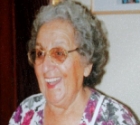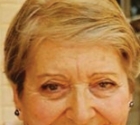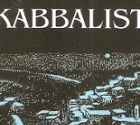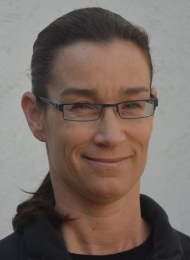
Networking over lunch at the English Libraries and Collections Conference
Main Findings from AACI Library Survey July 2011 - February 2012
Most English speakers in Israel have a great fondness for the libraries in their home countries. They remember their libraries as wonderful places, filled with new and varied collections, with large reading rooms and excellent librarians. Upon arriving in Israel however, many of these immigrants found that Israeli libraries were nothing like the ones back home. The English collections were often quite small and consisted of old books, the libraries were often dark and crowded with no reading rooms, and the system often made borrowing books seem like a difficult (and expensive) exercise in bureaucracy. Buying books at the one bookstore chain was also terribly expensive and the English selection there was also not always good.
For these reasons, organizations such as the AACI (Association of Americans and Canadians in Israel) began to open libraries around the country - in Safed, Haifa, Jerusalem, Netanya and Beersheba, and ESRA also began to operate second-hand bookshops - in Raanana (1991), Or Akiva (2008and in Modiin (2010). These places quickly became “institutions” for Anglo immigrants, some of whom were seeking a like-minded community of readers. Kibbutzim, moshavim and other towns or settlements founded by groups of English speakers also established small libraries, some of which have grown and remain strong, while others have dwindled or closed as the communities have changed.
It was also common, and remains common, for readers to obtain their English books in other ways: some people would fill their lifts with books upon moving to Israel, while others made sure that their suitcases – and those of friends and relatives who came to visit—were full of books as well. Books were exchanged with fellow Anglos, and English book club meetings began to take place in many locations in Israel. Other second-hand bookshops, some entirely in English and others mixed with Hebrew books, also became popular for readers of English.
In May 2011, the AACI announced a project to learn about the current state of English libraries and collections in Israel. I was privileged to be chosen to coordinate this project, and worked closely with Josie Arbel, Director of Klitah and Programming at the AACI. The project was funded by the Joseph & Harvey Meyerhoff Family Charitable Funds, and the study’s parameters were established together with their representative in Israel, Liz Trakeniski. In addition to the survey, a conference was recently held to present findings of the survey (see below).
As project coordinator, I visited 80 libraries (and some related institutions) in the six months between July and December, 2011 to see what was available for those who wish to read English and/or improve their English (including speakers of Hebrew, French, Spanish, German, Russian, Arabic). They included some independent English-only libraries, and also English collections within the central libraries of the larger cities in Israel, and libraries that are supported by the Joseph and Harvey Meyerhoff Family Charitable Funds.
The AACI currently operates English libraries in Netanya and Beersheba, as well as the AMIT-AACI library, and the AACI-Cohen Library for the Visually Impaired and Housebound (operating countrywide), both located in their Jerusalem office. The AACI is also currently in the planning stages of developing a children’s library in Jerusalem.
Very large English collections were found at the main libraries in the National Library, and Jerusalem’s Beit HaAm, Haifa’s Pevsner library, and Tel Aviv’s Beit Ariela, though exact types and numbers of books were hard to ascertain due to library composition (often there are several separate libraries) or cataloguing methods. (See lists of libraries/collections below).
LIST OF LIBRARIES & COLLECTIONS
There are nine libraries with more than 10,000 English books in their collections:
- Geiger English library in Safed
- Kibbutz Kfar Hanassi in the North
- Efrat's public library
- Benjamin Children's library in Beit Shemesh
- Raanana's public library
- Mediatheque in Holon
- Kibbutz Ketura near Eilat
- Kiryat Arba
- Baka library in Jerusalem (thanks to JELLY - the Jerusalem English-Language Library for Youth)
There are eight libraries with English collections of between 5,000 to 10,000 books:
- AMIT-AACI library at AACI office in Jerusalem
- AACI library in Beersheba
- AACI library in Netanya
- Koor Judaica library in Netanya (fiction and Judaica books)
- Kibbutz Gesher Haziv near Nahariya
- Ramat Hasharon public library
- Modiin public library
- AACI / JELLY teacher's library (offering English teachers class sets of English books, and other programming)
In addition to the public libraries, the English libraries are usually independently operated and are nonprofit organizations. There are also many small English libraries of 2,500 books or less, often belonging to Orthodox and Ultra-Orthodox populations, several of which were also visited.
Other libraries in Israel, mainly academic or reference-oriented, also include large numbers of English books, however they were not surveyed during this study.
SOME CONCLUSIONS FROM THE SURVEY
a. Most of the 860 public libraries in Israel have English collections of fiction and non-fiction that make up about 10% of the whole collection - or greater in areas with higher concentrations of Anglos.
b. English-language librarians and volunteers must make themselves better known among those who are looking for more from their libraries, such as a broader, better collection and / or cultural activities in the community.
c. Readers of English are not always well-acquainted with public libraries after improvements since the beginning of 2008. Public libraries now hope to become known not as book warehouses, but rather as information and cultural centers in their communities.
d. The Council of Public Libraries has recently set new rules regarding books and librarians for second-language populations. If people have requests for books and programs in English, they should “make a little noise” in the library.
e. Libraries can fulfill an important role in the community, and readers can find a role for themselves as volunteers at the library, as librarians or in helping to develop cultural programs for the surrounding community. There is a thirst for English among other groups in Israel as well, so English programs in libraries can include others, not just English speakers.
f. In some communities, libraries help new immigrants in their absorption process, both by giving them a warm community of English speakers, and by helping with aliya-related questions or even fulfilling needs. Libraries can be a buffer against loneliness (a “live chat room") for seniors, and some people, notably women, from the Ultra-Orthodox community feel their neighborhood English libraries are a real "life-line".
g. There is no central English library, although cooperation among English language librarians can improve with an online network of English language librarians and volunteers that is currently being set up with the support of the AACI.
h. The coming digital age requires changes in the outreach done by libraries to their reader base. Such efforts should include websites, Facebook, Twitter and Youtube.
i. English language readers are already adopting E-books, and thus this topic must be learned and implemented by librarians as soon as possible. What do E-books mean for English libraries? Would it be wise to establish a central English E-book library in Israel, and if so, how will it be funded?
j. In the long version of the Report of Survey Findings, more specific recommendations were made as a result of this survey in four areas: awareness, volunteers, technology and communication among colleagues.
For those interested in receiving a fuller report, and those interested in joining the new online group of librarians, volunteers and others who care about English reading in Israel, please contact Sandra at: libraryassessment@aaci.org.il
Sandra Morgeli-Shechory’s first job at age 12 was as a “page” at the local library in Calgary, Canada. She came to Israel as a teenager in 1982/3 with her parents who were on Sabbatical in Tel Aviv. Later, Sandra held various library jobs during her studies in Toronto, Calgary and Jerusalem. She received a B.A. in Mass Communications and Psychology (York University 1990, with junior year at Hebrew University), after which she made aliya and completed an M.A. in Social and Organizational Psychology (Bar Ilan University, 1995). She also has diplomas in Information Studies (Technion, 1999), and Coaching (ICF, 2000).
 That Certain Smile
That Certain Smile Fay Shelter 1919-2012
Fay Shelter 1919-2012 Doreen (Devorah) Goldberg 1924 – 2012
Doreen (Devorah) Goldberg 1924 – 2012 Robert Kwong at the Yeshiva
Robert Kwong at the Yeshiva  Friday Night with the Pope - A Book Review
Friday Night with the Pope - A Book Review The Kabbalist - A Book Review
The Kabbalist - A Book Review  SANDRA MORGELI-SHECHORY
SANDRA MORGELI-SHECHORY